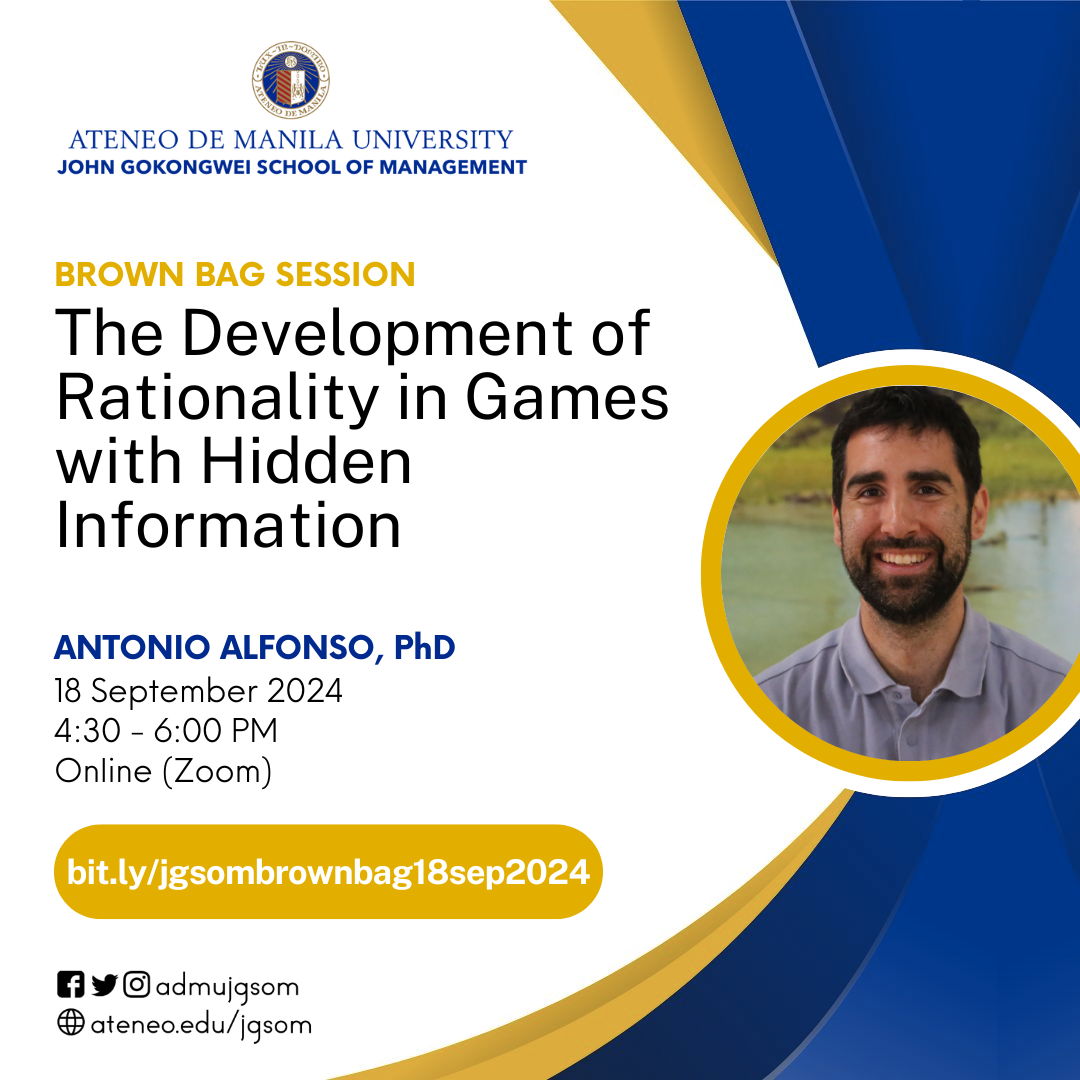The Development of Rationality in Games with Hidden Information
The John Gokongwei School of Management invites you to a Brown Bag Session on "The Development of Rationality in Games with Hidden Information". Our presenter is Dr Antonio Alfonso, Professor and Researcher at the Department of Economics, Loyola University of Andalusia, Spain.

This will be held on Wednesday, 18 September 2024 from 4:30 - 6:00PM online via Zoom.
Please register here: https://bit.ly/jgsombrownbag18sep2024
Brief Description of the Topic:
The presentation is about the first lab-in-the-field experiment that studies the strategic behavior of privately informed children and adolescents. We recruited 1662 participants from 8 to 18 years old to play a game of two-sided asymmetric information. We show that participants of all ages understand the fundamental relationship between action and private information (first level of rationality or choice monotonicity). Older participants are more likely to select strategies that match basic features of the optimal strategy compared to their younger peers (second level of rationality or strategic consistency). However, in none of our grades the individuals react to variations in incentives triggered by changes in game structure (third level of rationality or environmental variability). Remarkably, participants with heightened emotional intelligence exhibit a greater tendency to play strategically, best respond to others and, consequently, achieve higher payoffs. It reveals a strong, robust connection between affective theory-of-mind and cognitive theory-of-mind.
About the Speaker:
Antonio Alfonso is a professor and researcher in the Department of Economics at Loyola University of Andalusia. His academic background includes a Ph.D. in Economics from the University Pablo de Olavide, an MSc in Quantitative Economics from the University of Alicante, a BSc in Economic Analysis from the University Pablo de Olavide, and a BSc in Engineering from the University of Seville. He specializes in experimental design and programming, quantitative economics, and data science. His research explores the intersection of economics with daily life, aiming to enhance our future prospects. He has published works such as "Triadic influence as a proxy for compatibility in social relationships" in the Proceedings of the National Academy of Sciences (PNAS).
